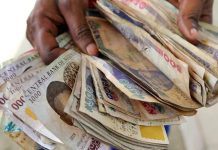The recent signing of the Banks and Other Financial Institutions Act (BOFIA) 2020 by President Muhammadu Buhari has given the necessary powers to the Central Bank of Nigeria (CBN) and the Nigeria Deposit Insurance Corporation (NDIC), to put in place a Banking Sector Resolution Fund, that ensures the safety of depositors’ funds as well as financial system stability.
According to Section 74 of the regulation, it states that without prejudice to the provisions of the Asset Management Corporation of Nigeria Act, the Resolution Fund shall be domiciled with the central bank and into which shall be paid all contributions and agreed levies.
The date of the commencement of the fund will be at the discretion of the CBN Governor, Mr. Godwin Emefiele, subject to ratification by the board of the bank.
To determine the commencement date of the Resolution Fund among other issues, BizWatchNigeria gathered that the CBN Board of Governors’ meeting has planned to hold this week
The Act also requires that starting from the take-off date of the fund, all banks, specialized bank, and other financial institutions under the regulation of the CBN, will pay an annual levy, in an amount equivalent to ten basis points or such basis points as may from time to time be determined by the central bank.
READ ALSO: NLC Tells FG To Reverse Price of Petrol
This will be based on the financial institutions’ total assets as at the date of their audited financial statements for the immediately preceding financial year published pursuant to this Act, and which shall be payable on the commencement date, and on or before the 30th day of April in each subsequent calendar year following the commencement date.
It noted that the fund shall be utilised exclusively to pay operating costs of a bridge bank; to pay the costs of transferring the whole or any part of the business of a bank, specialised bank or other financial institution pursuant to a resolution measure.
In addition, it is to provide a loan, advance, overdraft, or other credit facilities to a bank, specialised bank or other financial institution under resolution or a bridge bank; to pay any other costs reasonably incurred in the resolution measure, such as legal cost, cost of any advisory services, and the cost of an independent valuation of the bank, specialised bank, or other financial institution under resolution; among others.
It stated further: “The Resolution Fund shall not be subject to tax and accordingly, all monies accruing to, payments made from, and instruments and transactions relating to, the Resolution Fund shall be exempt from all forms of taxes, levies, duties, charges, or imposition howsoever described.”
Section 75 also states that, “on the commencement date of the Resolution Fund, and on the first business day in each calendar year thereafter, the bank shall pay into the Resolution Fund, the sum of N10 billion or such amount as the board of the bank may, from time to time determine.
“For the purposes of making the payment required under sub-section (1) of this section, the bank shall appropriate the said sum of N10 billion or such amount determined by the board of the bank, from the general reserves or other funds of the bank, and cause the sum so appropriated to be paid into the Resolution Fund in immediately available funds.”
Also, it stated that the NDIC, “At the commencement date, and thereafter, on the first business day in each calendar year, following the commencement date, the corporation shall pay into the Resolution Fund, the sum of N4 billion or such amount as the board of the bank may from time to time determine.”
“Any annual levy paid by a bank, specialised bank or other financial institution in pursuance of this Act, shall be deductible for the purposes of the companies’ income tax of the paying bank, specialised bank or other financial institution under the Companies Income Tax Act.
“A bank, specialised bank or other financial institution that is in default of payment of the levy imposed under this Act or any part, thereof shall be prohibited from paying dividends or other purpose of the Resolution Fund,” it added.
The BOFIA 2020 stipulates that in the event that the CBN Governor has good grounds to believe that transactions undertaken in any account may be linked with any criminal offence under any law, “the Governor may make an ex-parte application for an Order of the Federal High Court verifying on oath the reasons for the governor’s belief, and on obtaining such court order to freeze the account.”














